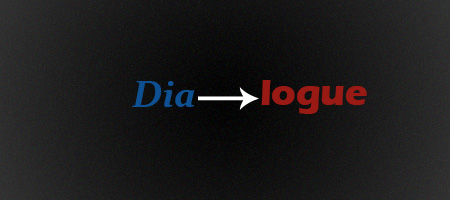Blog - Blogue

To read or not to read?
vendredi, 14 Novembre 2014By Iva Apostolova
 One thing can be said about philosophy without a doubt: it’s bulky. Have you seen the size of The Critique of Pure Reason by Kant?
One thing can be said about philosophy without a doubt: it’s bulky. Have you seen the size of The Critique of Pure Reason by Kant?
Yes, philosophers are verbose, and they also have a lot to say. Reading philosophical texts in a systematic way is a lot like learning a new language – at first there is the excitement of opening the door to a new world, then there is the pride of how much and how fast one is learning new vocabulary, and new ways of constructing one’s thoughts, until finally, panic and anxiety set in. Anxiety that no matter how much vocabulary one is acquiring, one can never ‘absorb’ and ‘engulf’ all of the new language.
Even worse, soon after one starts reading literature or poetry in the newly acquired language, one realizes that all the fine nuances in the use and meaning of words, which are not to be found in dictionaries, are not only hard to catch but often completely lost on a reader who is outside the specific linguistic and cultural context. In other words, every language requires interpretation and re-interpretation, and every language is prone to misinterpretation. Imagine the same thing but turned up to the max and you’ve got a pretty accurate picture of how it feels to read philosophy.
Because of its nature and its sheer volume, philosophy generates more anxiety compared to, perhaps, any other discipline.
The question is how to deal with it.
Like everything else in life, you try to create good habits that will carry you through.
Have you heard the expression: ‘the devil is in the details’? Well, that is especially true for philosophy. Perhaps the most important skill you learn in philosophy is connecting the dots, so to speak. It is not about how much you have read but whether you have managed to make the connections between the different ideas presented by the author/s. And that is hard! It is hard because every philosophical text is a complete, self-sufficient universe, a life narrative, if you will.
But there are things you can do to make the challenge manageable:
Trust your instructors and mentors; they have been where you are now, and they know how you feel.
Don’t forget that philosophy is dialogical in nature. In other words, it is far more important to bounce your ideas off someone else than lock yourself in the ‘armchair philosophy room’.
Take an interest in something, a topic, a problem, or a dilemma, and stay with it.
But take an interest in something that you can relate to. Despite common perception, philosophy is not, and should not be detached from one’s personal narrative. It doesn’t mean that you can’t change your mind about what interests you. All great philosophical minds have done it. But if you choose points of philosophical interest that you, as a person, can relate to, you will be able to connect the dots so much better, and eventually, weave a philosophical canvas which will become part of your own personal story.

